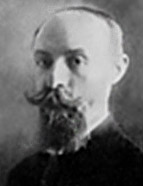

A dedicated scholar and teacher, Georges Le Gentil is the author of an important body of work, both in terms of the number of studies published and the renown of his work in Portuguese studies. Taking on the role of the first promoter of the Portuguese language and culture in France, he is the author of a work of remarkable thematic and historical breadth. A literary historian, literary critic, translator and renowned Lusophile, he applied a new scientific method to his historical and literary studies, inspired by the work of Gustave Lanson (1857-1934), professor of French literature at the Sorbonne and the École normale supérieure. A student of Brunetière, Lanson left his mark on literary studies in the late 19th and early 20th centuries when he rejected impressionist criticism and introduced rigour, method and erudition into the study of literary facts, through an unprecedented attention to the historical context of the production and dissemination of texts. (A. Vaillant, L’Histoire littéraire , 2012, pp. 77-98). There is a striking similarity between Lanson’s work and that of Georges Le Gentil: both wrote critical editions of literary works, monographs on authors and compendiums of literary history. Perhaps it is his re-evaluation of the work of Fernão Mendes Pinto that best reflects Le Gentil’s method, proposing an unprecedented analysis of the Portuguese author’s work based on a dual literary and historical dimension. The first biographical part of the book is completed by a study of the literary value of Fernão Mendes Pinto’s work, portrayed as a ‘man of letters’, a precursor of exoticism in the Portuguese literary tradition, after demonstrating the romantic (and not autobiographical) nature of the famous Peregrinação published in Lisbon in 1614 (Fernão Mendes Pinto. Un précurseur de l’exotisme au XVIe siècle , 1947). Another decisive aspect of this new method is the need to highlight the multiple connections and circulations that affirm the importance of Portugal, a small and peripheral country on the European continent. Thus, his study of Oliveira Martins’ work allows him to emphasise the connected dimension of a political , historical and philosophical work that dialogues with the major currents of Western European thought in the second half of the 19th century.
This work is financed by national funds through FCT - Foundation for Science and Technology, I.P, in the scope of the projects UIDB/04311/2020 and UIDP/04311/2020.
